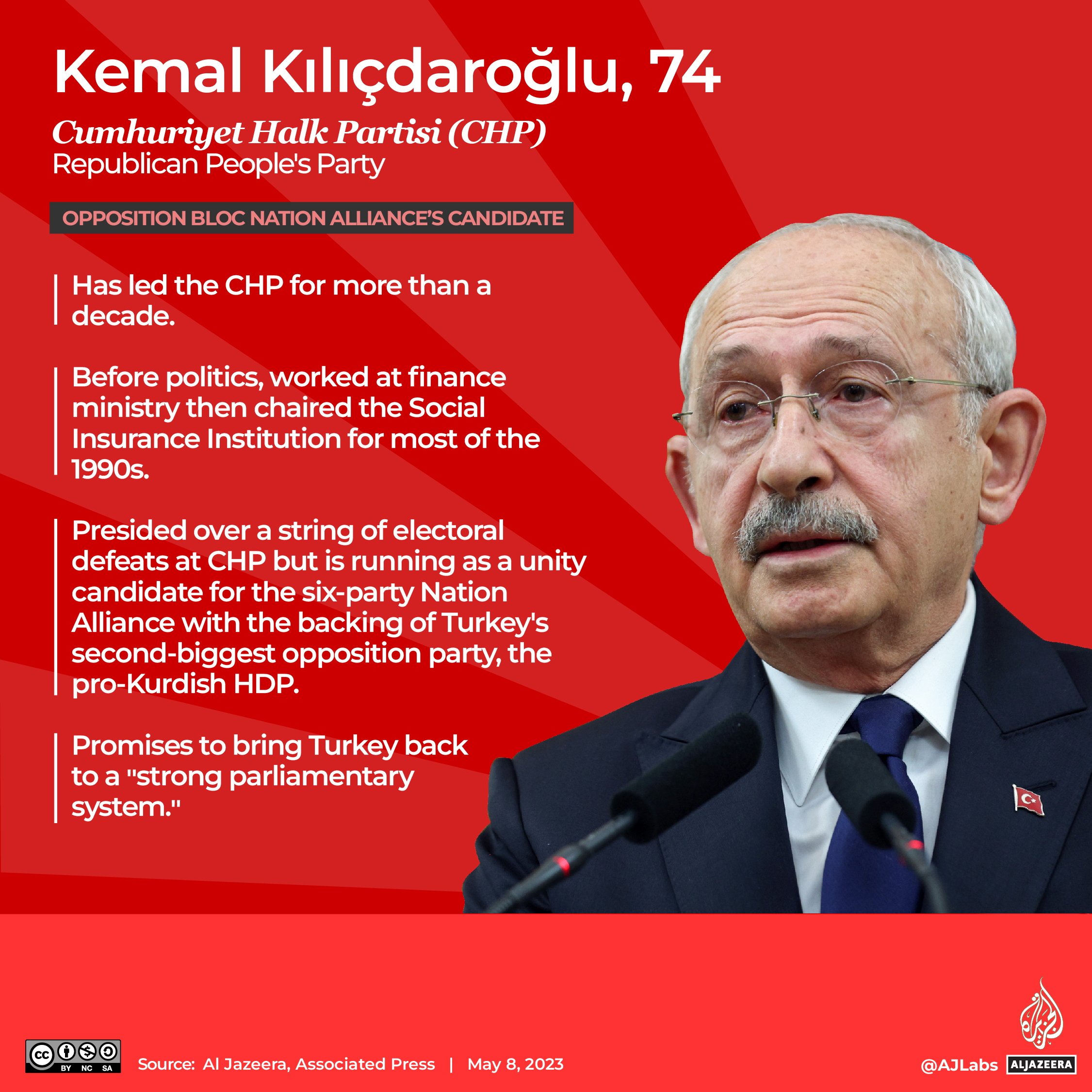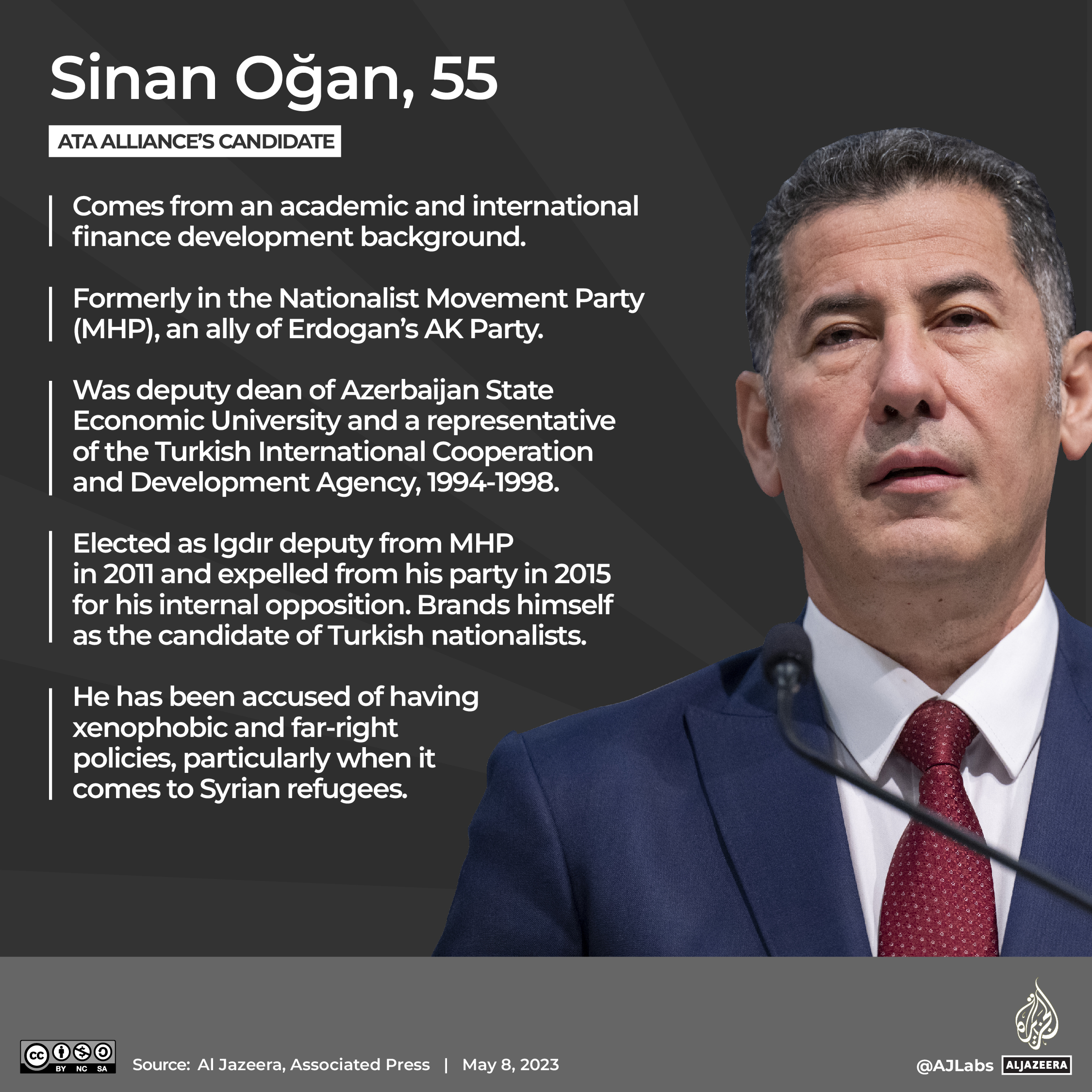
Turkey’s presidential election is headed for a run-off vote on May 28 after no candidate secured more than 50 percent of the vote.
President Recep Tayyip Erdogan took 49.5 percent of Sunday’s vote, with his main challenger, Kemal Kilicdaroglu, getting 44.89 percent, Turkey’s Supreme Election Council said on Monday.
More than 64 million people were eligible to vote to elect a president and parliament for a five-year term.
The results of the elections are shown below.

Map of results:

How voting works in Turkey
In July 2018, a month after Erdogan won the presidency, Turkey transitioned from a parliamentary to a presidential system, abolishing the post of prime minister. Presidential and parliamentary elections are held on the same day every five years.
There are three presidential candidates: Recep Tayyip Erdogan (AK Party), Kemal Kilicdaroglu (CHP), and Sinan Ogan (ATA).
Any candidate who can secure more than half the presidential vote on May 14 will be the winner. If no candidate can secure that, there will be a second run-off between the two top contenders two weeks later.
2022 electoral changes
In a law passed by the parliament in April 2022, the election threshold decreased from 10 percent to seven percent.
More importantly, the amendments changed the way seats are distributed among member parties of an alliance.
In the past, parliamentary seats were allocated according to the total votes mustered by an alliance through common candidate lists prepared by allied political parties.
With the changes, the seats will be allocated according to the votes that each party receives individually.

Main candidates
Recep Tayyip Erdoğan, 69
Adalet ve Kalkınma Partisi (Justice and Development Party, known as AK Party)
People’s Alliance candidate
- The current president has had 20 years in power, nine as president.
- Was prime minister from 2003 to 2014 and mayor of Istanbul from 1994 to 1998.
- Seeking a third consecutive presidential term in May 14 elections.
- This could be his most challenging election as voters worry about the economy and earthquake damage.

Kemal Kılıçdaroğlu, 74
Cumhuriyet Halk Partesi (CHP, known as Republican People’s Party)
Nation Alliance candidate
- Has led the CHP for more than a decade.
- Before politics, he was a finance ministry specialist, then chaired the Social Insurance Institution for most of the 1990s.
- Presided over a string of electoral defeats at CHP but is running as a unity candidate for the six-party Nation Alliance with the backing of Turkey’s second-biggest opposition party, the pro-Kurdish HDP.
- Promises to bring Turkey back to a “strong parliamentary system”.

Sinan Oğan, 55
ATA Alliance candidate
- Comes from an academic and international finance development background.
- Formerly in the Nationalist Movement Party (MHP), an ally of Erdogan’s AK Party.
- Was deputy dean of Azerbaijan State Economic University and a representative of the Turkish International Cooperation and Development Agency, 1994-98.
- Elected as Igdır deputy from MHP in 2011 and expelled from his party in 2015 for his internal opposition.
- Brands himself as the candidate of Turkish nationalists.
- He has been accused of having xenophobic and far-right policies, particularly when it comes to Syrian refugees.








